Mother Earth Day 2024 is here with an important goal: coming together to fight plastic pollution. Right now, we're facing big environmental problems, and it's clearer than ever that we need to do something about the harmful effects of plastics on our planet. The theme for this year, "Planet vs. Plastics," hits home, urging everyone to understand the issue, take quick action, and work together to protect our planet's health.
Quick Links
-
The birth of Earth Day
-
The challenge of plastic pollution
-
What we can do to fight plastic pollution?
-
agood company - Mother Earth's ally in the fight against plastic pollution
-
Simple steps you can take now to reduce plastic waste
The birth of Earth Day
Mother Earth Day, celebrated each year on April 22nd, has its roots in the environmental movements of the 1960s and 1970s. Back then, people were becoming more aware of the urgent need to protect our planet and deal with environmental problems.
The first Earth Day took place on April 22, 1970. It was a huge event, with millions of Americans coming together to protest against pollution, deforestation, and other environmental issues. This powerful movement led to the creation of the Environmental Protection Agency (EPA) and the passing of important environmental laws like the Clean Air Act and the Clean Water Act.
Since then, Earth Day has become a global event. People from all over the world celebrate and advocate for environmental protection on this day. It reminds us how vital it is to preserve our planet for future generations and encourages everyone to take action to tackle environmental challenges.
The challenge of plastic pollution
Plastic pollution has become a major problem all around the world. It's found everywhere, from the deepest parts of the oceans to the highest peaks of mountains. This widespread presence of plastic is causing serious harm to wildlife, natural habitats, and even our health.

Imagine taking a walk on a beautiful beach, only to find it littered with plastic bottles, bags, and packaging. These items pose a significant threat to marine life. Sea turtles mistake plastic bags for jellyfish, while seabirds may accidentally ingest small pieces of plastic, leading to serious health problems.
And the problem is not limited to our oceans. Landfills overflow with plastic waste, and even remote areas far from human civilisation are not spared from the reach of plastic pollution. Microplastics, tiny plastic particles, have been found in soil, water, and air, posing a risk to ecosystems and potentially entering the food chain.
The impact of single-use plastics
One of the biggest contributors to plastic pollution is the widespread use of single-use plastics. Items like plastic bags, straws, bottles, and packaging are used briefly and then discarded, often ending up in landfills or finding their way into waterways and oceans.
Why do we need to act? Plastic pollution is causing irreparable damage to our planet. It's harming animals, destroying habitats, and polluting our waterways. If we don't take action now, the problem will only get worse. That's why it's so important to unite against plastic pollution this Mother Earth Day.
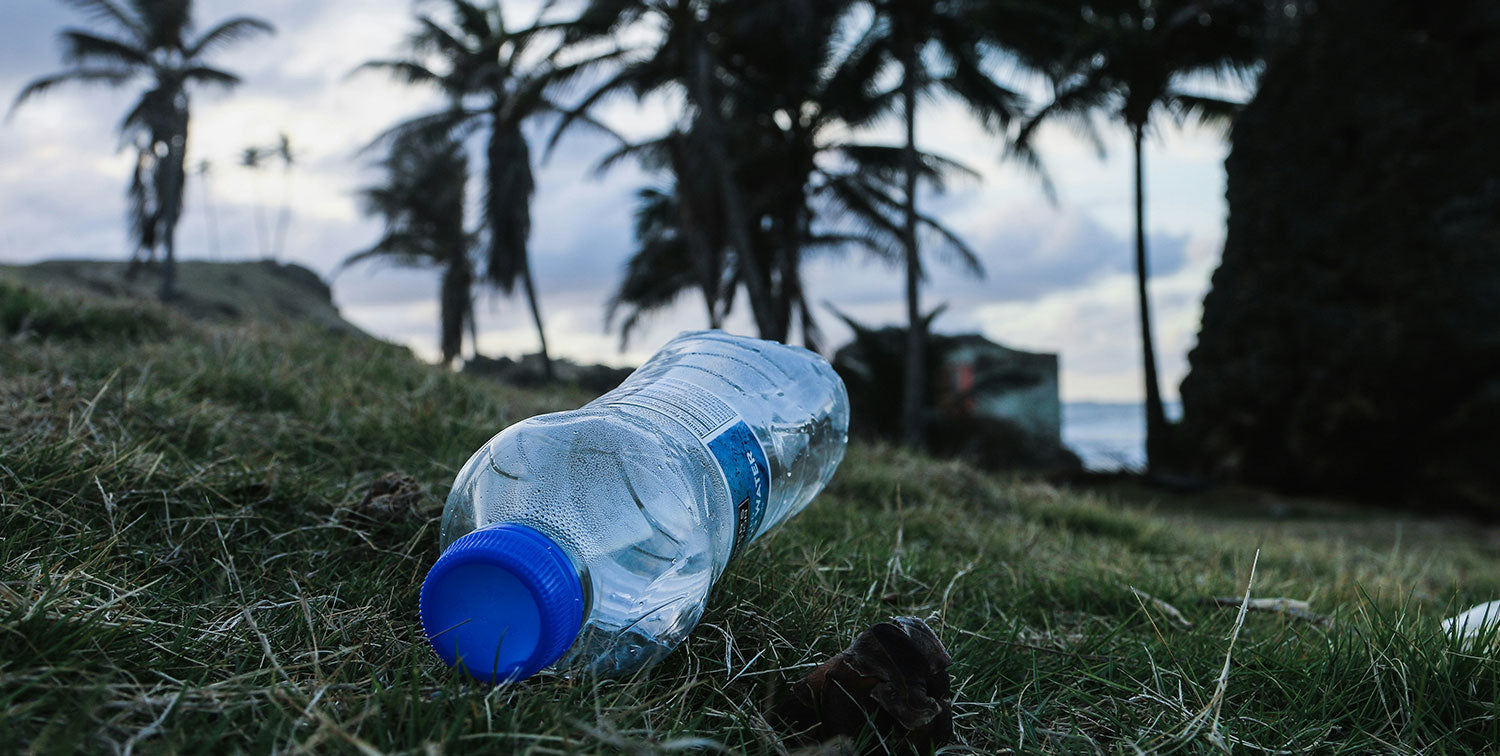
E-waste and plastic pollution
Electronic devices often contain plastic components, such as casings, wires, and circuit boards. When these devices are disposed of improperly or not recycled correctly, the plastic components can end up in landfills further contributing to the accumulation of plastic waste. Over time, plastic components in electronic devices can break down into microplastics, which can leach harmful chemicals into the environment and contaminate soil and water.
Slow fashion – less plastic
Fast fashion may seem convenient, but it's harmful to the environment. Many of the clothes we buy are made with synthetic fibres, which come from plastic. When we throw away these clothes, they end up in landfills, where they can take hundreds of years to break down.
The process of making all these clothes uses a lot of energy and water, which adds to pollution and contributes to climate change. That's why it's important to think twice before buying fast fashion and to choose clothes made from more sustainable materials instead. This also supports a circular economy, where resources are recycled and reused, reducing waste and pollution.
What we can do to fight plastic pollution?
There are many things we can do to fight plastic pollution. We can start by reducing our use of single-use plastics. Instead of using plastic bags, we can bring our own reusable bags when we go shopping. We can also say no to plastic straws and bring our own reusable water bottles. By making small changes in our everyday lives, we can make a big difference for our planet.
We can also advocate for change on a larger scale. We can support policies that reduce plastic pollution, like banning single-use plastics or implementing recycling programs. Whether through social media campaigns, community events, or educational outreach programs, we can all contribute to spreading knowledge and fostering a greater understanding of the environmental consequences of plastic pollution. By speaking up and raising awareness about the issue, we can inspire others to take action too.
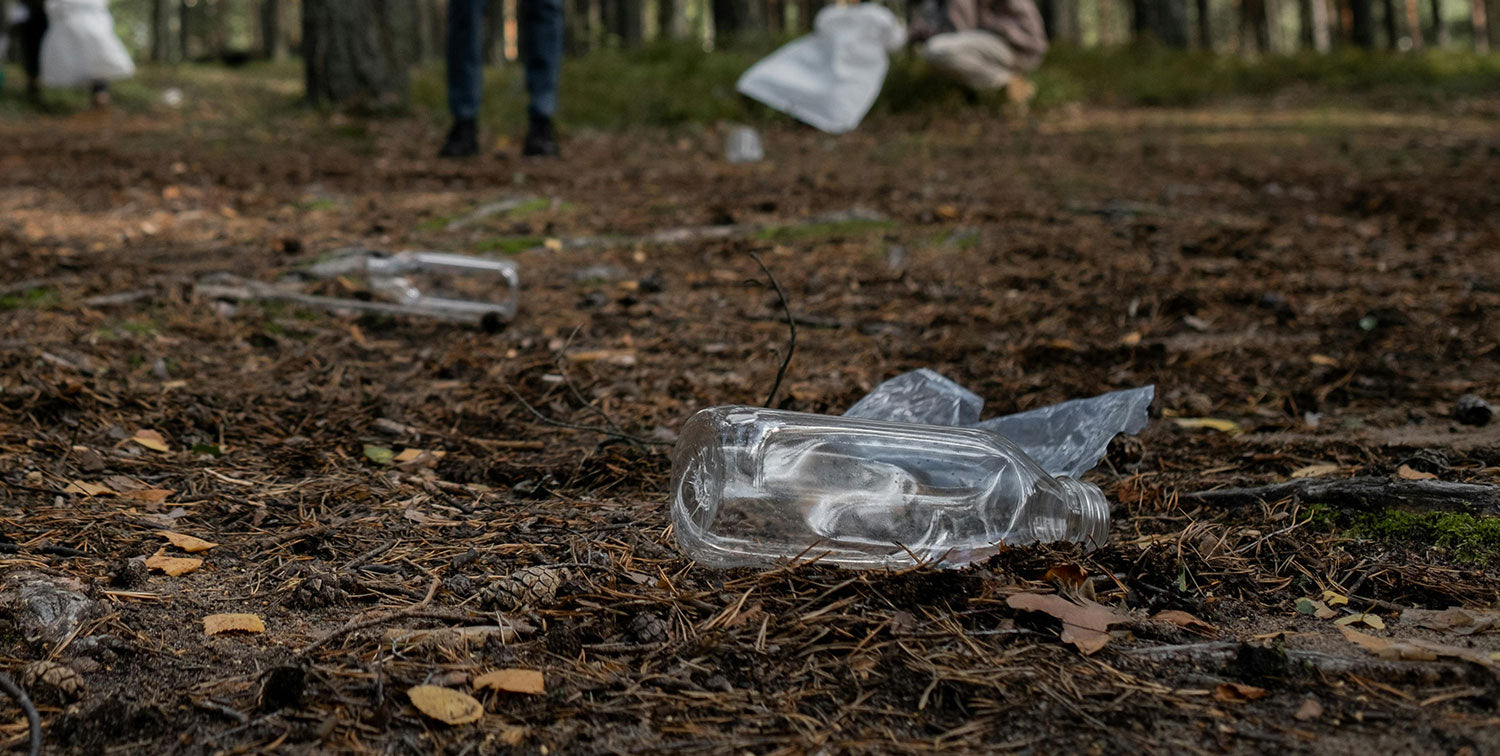
And don't forget about reusing plastic at home! Find creative ways to give plastic a second life, whether it's for storing things or fun DIY projects. Every little bit helps in our mission to clean up our planet.
agood company - Mother Earth's ally in the fight against plastic pollution
At agood company, sustainability is at the heart of everything we do. It’s our guiding principle. We're committed to using eco-friendly materials in all our products and ensuring that our manufacturing processes are clean and sustainable from start to finish. Our plant-based phone cases and stainless steel thermal bottles are shining examples.
Plant-powered phone protection
Traditional phone cases are often made from non-biodegradable plastic, contributing to the global plastic pollution crisis. Our plant-based phone cases offer a solution that's both stylish and sustainable. These cases provide the same level of protection for your device without harming the environment - they're tough, trendy, and totally Earth-friendly, with tons of cool designs!
Our plant-based phone cases are also biodegradable and compostable, which means they break down naturally when they're no longer in use. These plant-based alternatives decompose into organic matter, minimising their impact on ecosystems and reducing waste accumulation in landfills and oceans. However, we would really appreciate it if you could send back your old case to us through the agood loop™ system once you're done with it. We will use those returned cases to make new ones and, in return, you will get a discount for your next purchase!
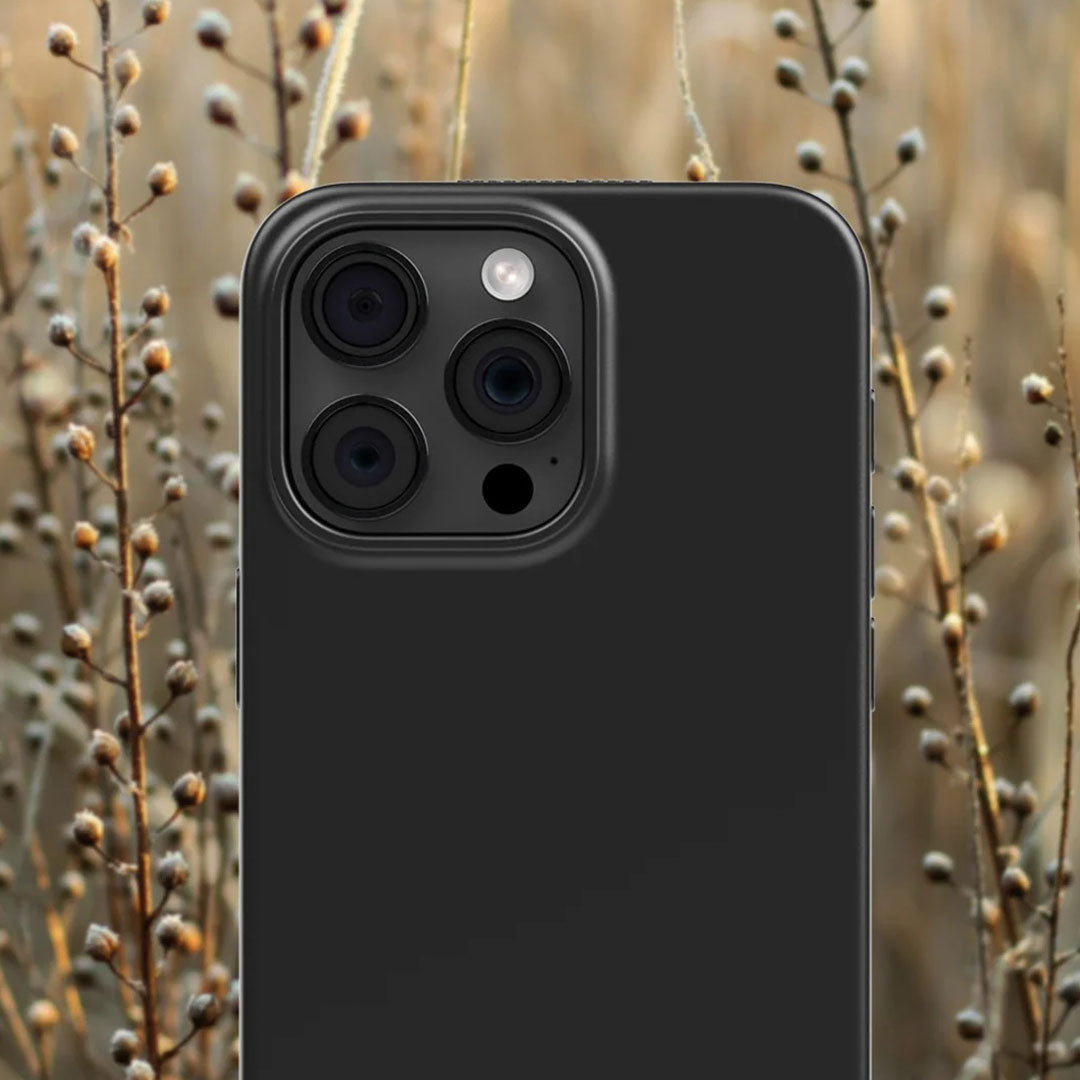

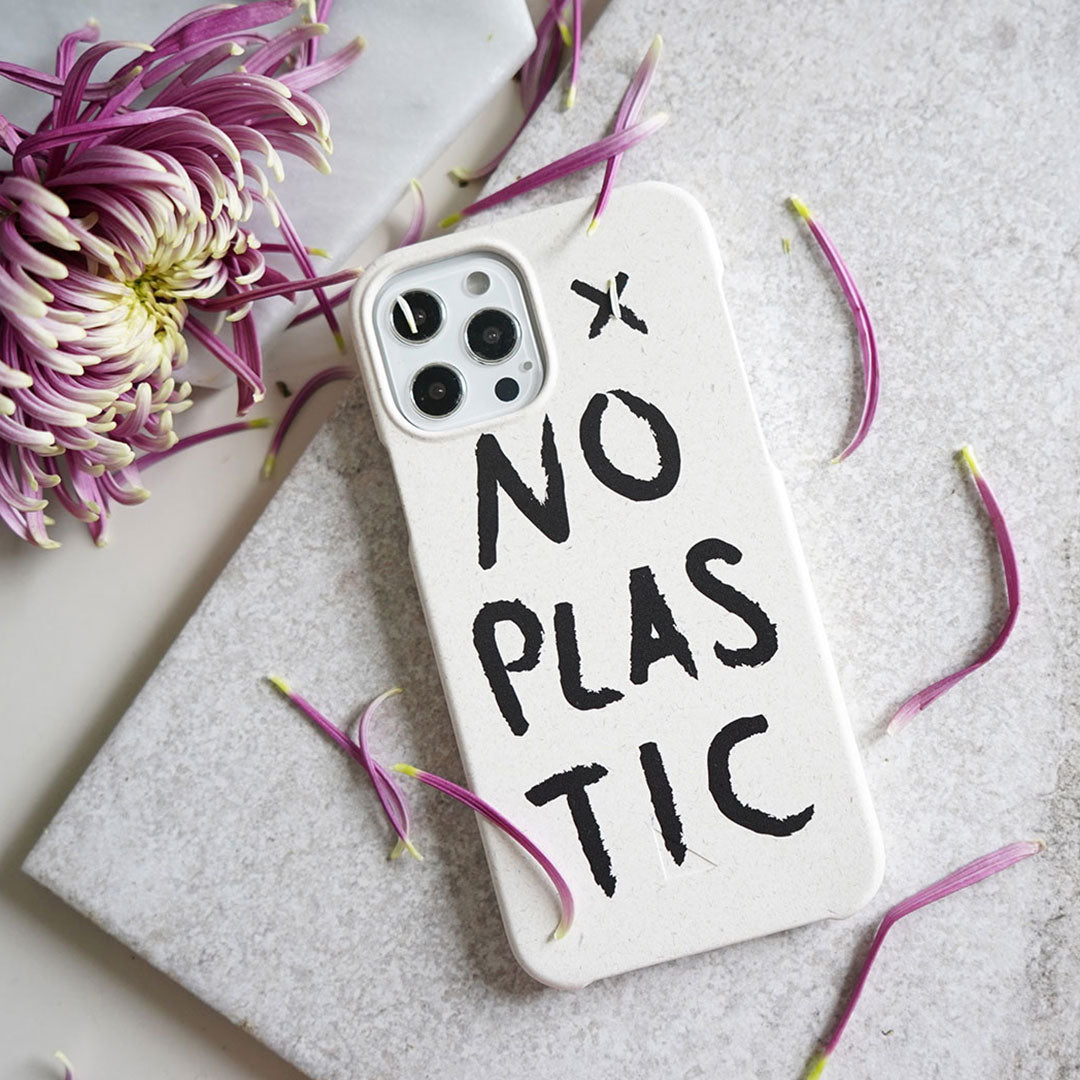
Pair this case with our tempered screen protection made from recycled glass for the ultimate eco-friendly phone setup. Screen protectors help reduce plastic pollution by extending the life of your phone. They prevent scratches and cracks, so you're less likely to replace your device due to screen damage. This means fewer new phones need to be made, which cuts down on plastic used in manufacturing and thrown away as waste.
Sip responsibly with recycled steel
The eco-conscious solution to hydration - reusable bottles made from recycled steel. These bottles provide a sustainable way to hydrate on the go while also doing your part to reduce plastic pollution. Lightweight and durable, our reusable water bottles help reduce plastic waste, keeping your drinks cold for up to 48 hours or hot for up to 20 hours. Bottles are also dishwasher-friendly, so cleaning them is a breeze. But what's even better is that with every bottle you purchase, you're helping provide clean and safe drinking water to communities in need through our partnership with charity: water. And when your bottle eventually reaches the end of its life, you can simply recycle it, knowing that it will be repurposed into something new.
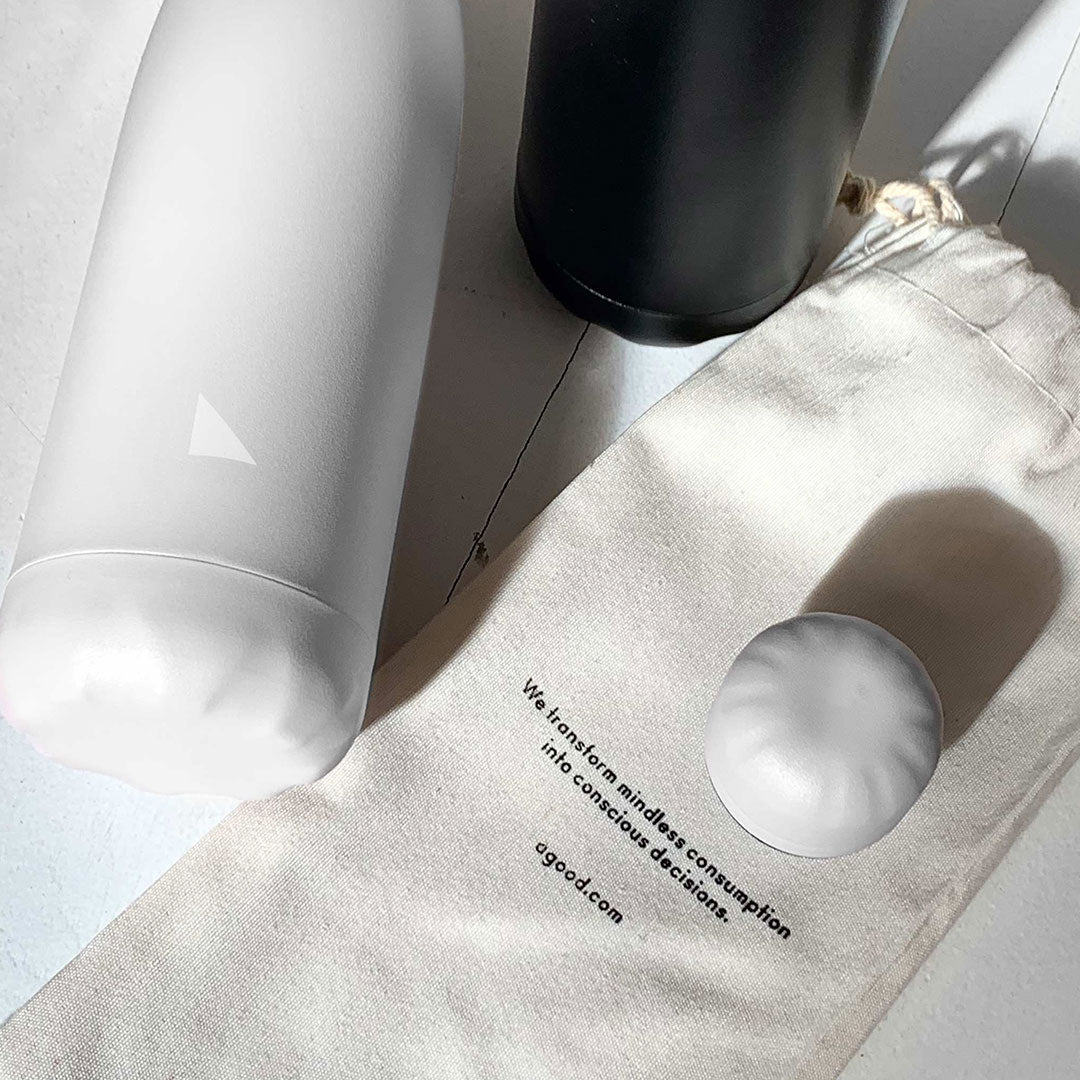

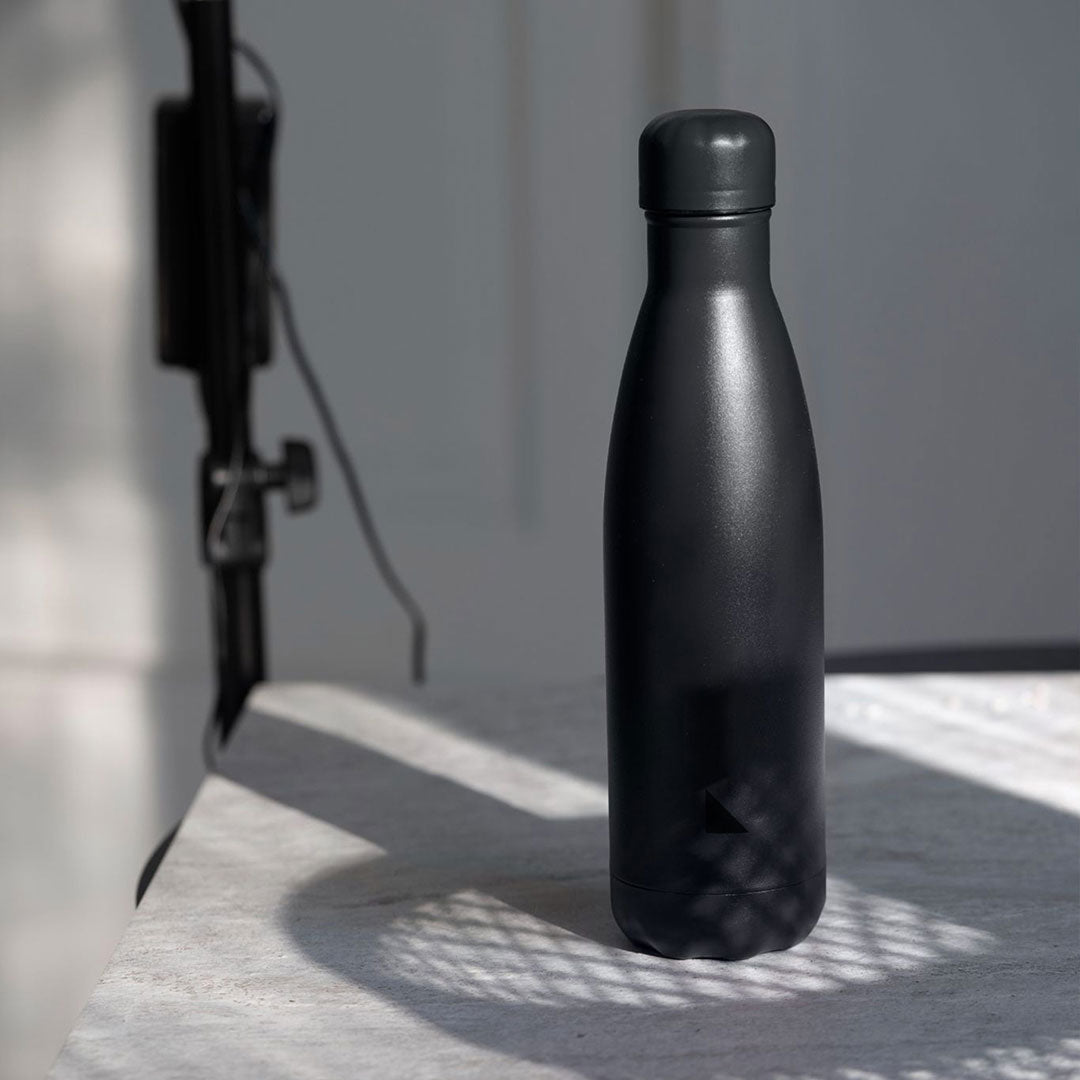
Simple steps you can take now to reduce plastic waste
- Educate yourself and others - Learn about the harmful effects of plastic pollution and share your knowledge with friends and family. Speak up for policies that reduce plastic usage and promote recycling. Your voice matters.
- Choose eco-friendly businesses - Support companies that prioritise sustainability. By voting with your wallet, you can encourage more businesses to go green and reduce their plastic waste.
- Join community cleanup events - Get involved in local cleanup efforts to remove plastic waste from our neighbourhoods and waterways. It's a fun way to make a difference and connect with your community.
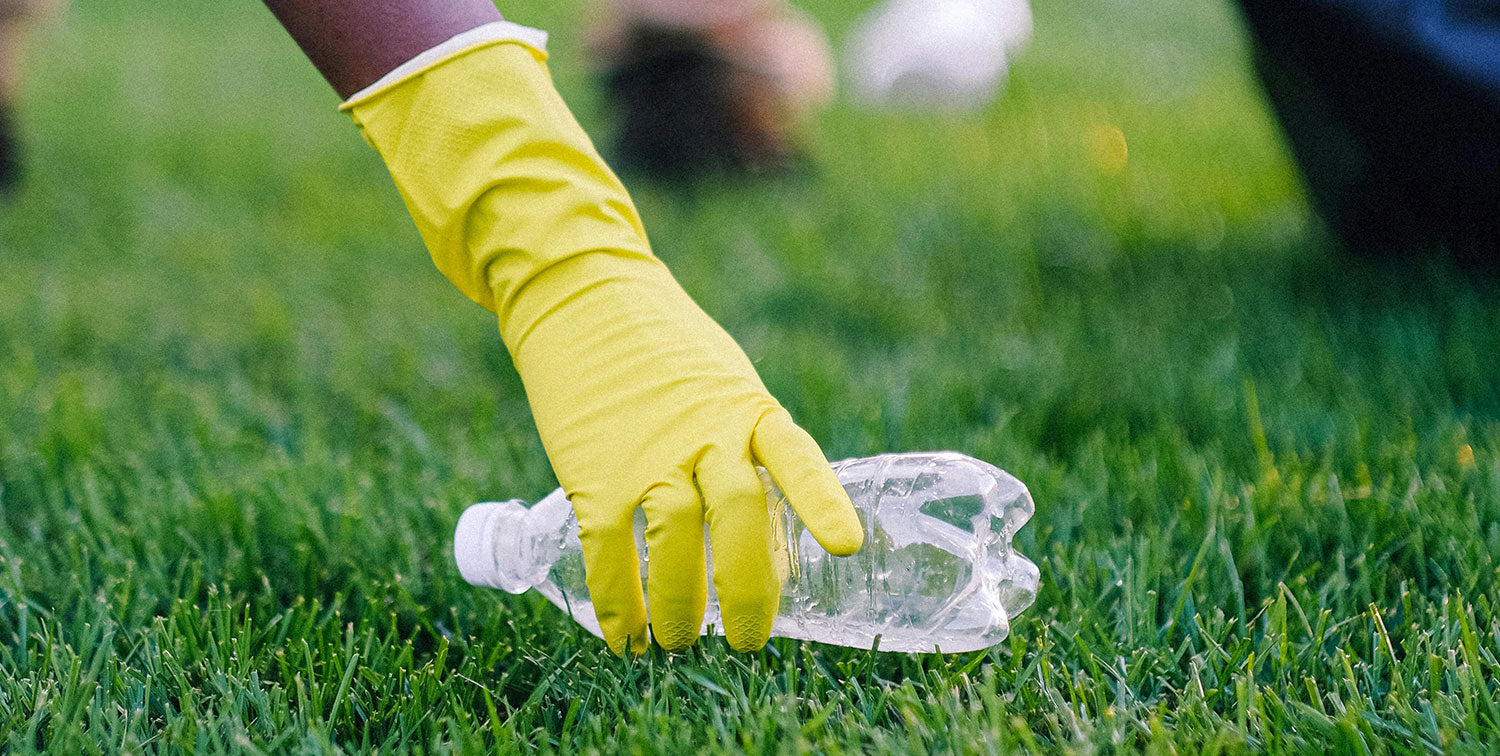
- Choose sustainable alternatives - Swap single-use plastics for eco-friendly options like reusable bags and compostable packaging. Small changes can add up to big results!
- Reduce plastic in personal care - Look for personal care products packaged in recyclable or biodegradable materials. You can also make your own natural alternatives at home.
- Support plastic-free initiatives - Join initiatives like Plastic-Free July and commit to reducing your plastic consumption. Every little bit helps in the fight against plastic pollution.
- Engage youth - Get kids and teens involved in environmental activities and discussions. Their passion and creativity can inspire meaningful change for a cleaner, greener future.
Final thoughts
Getting rid of all plastic might seem impossible, but if everyone chips in a little, it can make a big difference. Imagine the impact if each of us just did a little bit. Like drops in a bucket, our individual efforts can fill the well of change. So, let's take small steps together - refusing a plastic straw here, opting for reusable bags there, and watch as our collective actions ripple outwards, creating waves of positive change.


